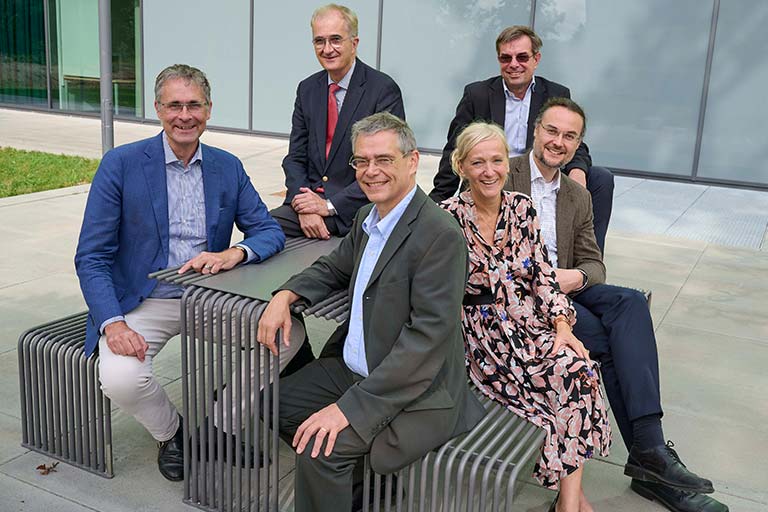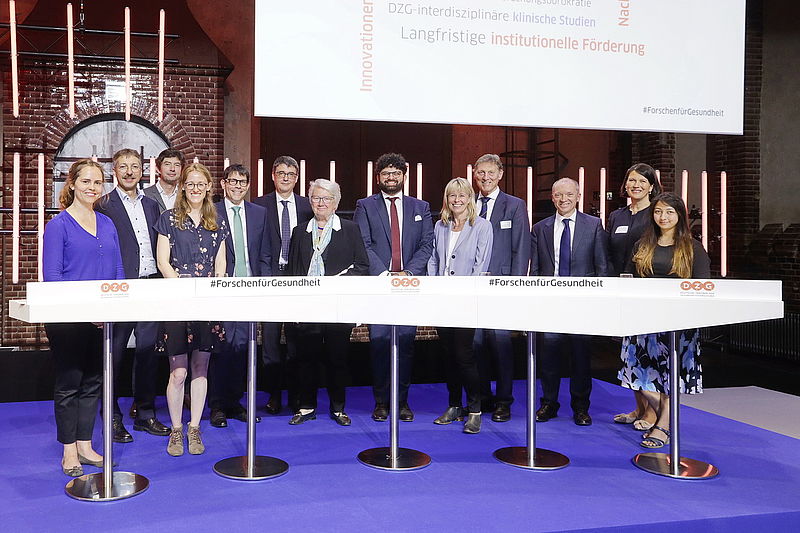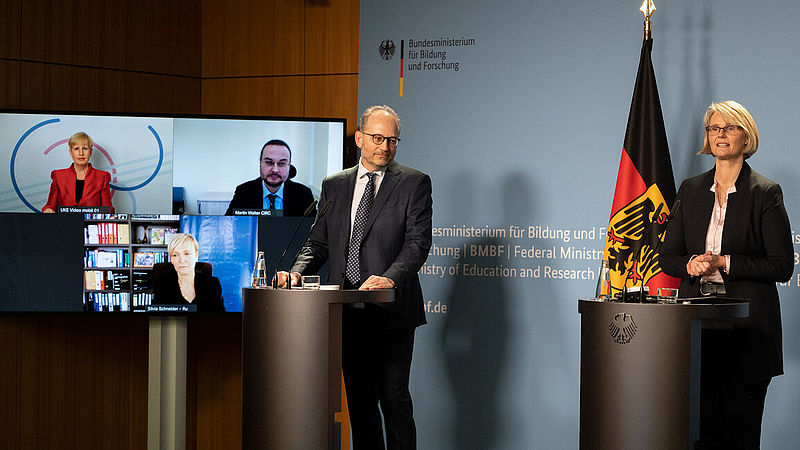Since May 2023, experts at the Deutsches Zentrum für Psychische Gesundheit (DZPG) have been working to improve the mental health of the population and destigmatise mental illness through collaborative research. At six locations in Germany, clinicians and researchers work together with patients and their families.
"The DZPG is the most important federal and state funding measure for research in psychiatry and psychotherapy in Germany to date," says Prof. Dr. Dr. Andreas Heinz, Director of the Department of Psychiatry and Psychotherapy at Charité - Universitätsmedizin Berlin. "It is a milestone in mental health research and opens up the possibility of sustainably improving the health literacy of the population and the care of patients," adds Prof. Andreas Meyer-Lindenberg, Director of the Central Institute of Mental Health in Mannheim. Heinz and Meyer-Lindenberg are currently spokespersons of the DZPG board.
Focus on early detection and environmental factors
During the two-year start-up phase, research will focus on the early identification and treatment of people at risk of mental disorders, in order to prevent the development or consolidation of such disorders. In particular, the influence of living conditions, including childhood trauma, will be investigated in order to develop new treatment methods. It is also important to the DZPG that research findings actually reach people and that practical experience is used to develop research questions.
To this end, the DZPG will establish joint research infrastructures, for example for the digital collection of health data from everyday life and for the development of innovative therapeutic approaches that take into account biological, psychological and social influences.
Participation as a concept
In 2018, the German government decided to establish the DZPG as part of the German Centres for Health Research. In 2021, six locations were selected in a competitive process: Berlin-Potsdam, Bochum-Marburg, Halle-Jena-Magdeburg, Mannheim-Heidelberg-Ulm, Munich-Augsburg and Tübingen. A total of 27 university and non-university research institutions are working together at these locations. The German federal and state governments intend to provide long-term funding for the DZPG from 2025.
The DZPG has focused on participation from the outset: those affected and their relatives are involved in all research processes and in all decision-making bodies. All six locations send representatives to the Trialogical Center Council. Young scientists are also involved in decision-making processes at an early stage.
Now online
The six research locations and the Trialogical Center Council are now also visually linked by a uniform corporate design. The DZPG logo with overlapping color areas and organic shapes symbolizes the diverse moods and states of mind of the human emotional world.
At www.dzpg.org, interested parties can now find information on the organization, research projects and goals as well as informative texts and helpful links on the topic of mental health.
Source: DZPG press release



